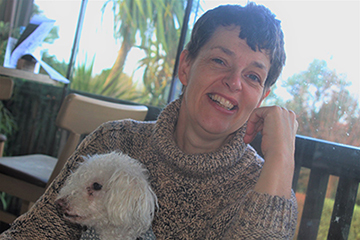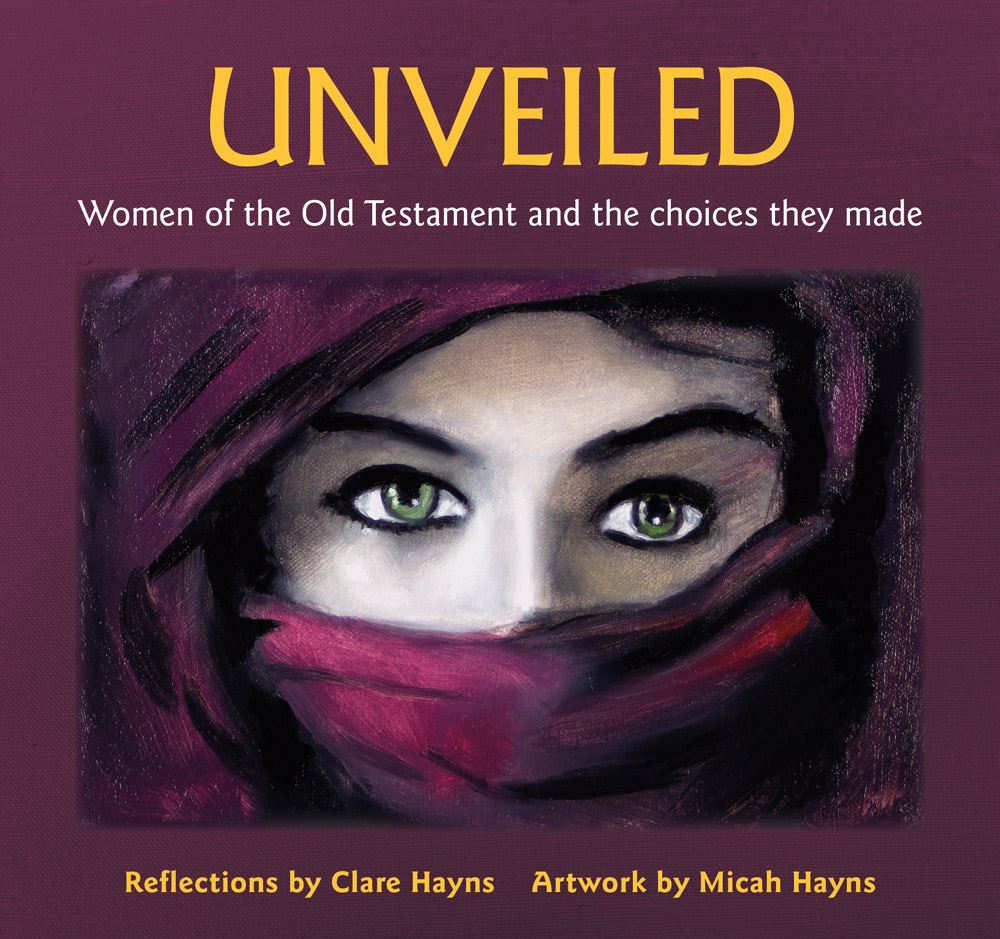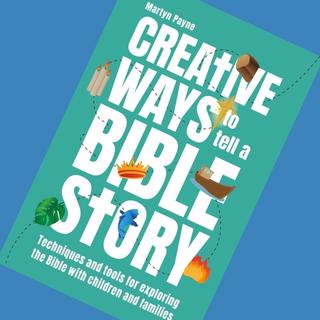In the second in a new series of articles based on Clare and Micah Hayns’ best-selling book Unveiled, Parenting for Faith co-ordinator Becky Sedgwick finds powerful connections and haunting echoes across millennia.
19 June 2022
New gems in old stories
One of the most beautiful things I have discovered over the years is that the Bible is the book that keeps on giving. However well I think I know the stories, as I revisit them, God shows me little gems to delight in and learn from.
So it was a joy to discover Clare and Micah Hayns’ new book, Unveiled: Women of the Old Testament and the choices they made, which contains reflections on 40 Old Testament women.
Working for Parenting for Faith, I was drawn to the stories grouped together under the heading ‘Mum’s the word’. And reading of these women, these mothers of so long ago, I was struck by how much their stories resonate with the lives of mothers today.
I can imagine Hannah, exhausted and overwhelmed, stroking the head of her longed-for newborn, or Rebekah, having survived a dangerous delivery of her twins, turning her head upwards to wordlessly thank God for their survival.
I can imagine the elderly Sarah, cupping her hands joyously around her newly swelling belly as she realises that God has kept his promise.
‘Reading of these mothers of so long ago, I was struck by how much their stories resonate with the lives of mothers today.’
And I can imagine the widow of Zarephath smiling as she watches her young son playing with his friends.
Hard lives
But motherhood was tough then. Not simply because mums didn’t have the benefit of the extraordinary healthcare we experience or the safeguards our society puts in place for families, but because women’s lives were tough. Really tough.
Tough in the way we see in the news today. Women clutching children as they flee war, risking everything as they travel. Women having babies in places where there is no or only rudimentary healthcare, where one in seven mums will die in childbirth. Women giving birth as the result of rape or sexual slavery. Women feeding their children leaves, because there is no other food.
Mothers then had virtually no choices. Sarah followed Abraham from Haran to Ur to Canaan to Egypt, where he gifted her to Pharaoh as his new concubine. Jochebed gave birth to a son knowing with his first breathy cry that he would almost certainly be killed. Hagar, a slave, was impregnated at her mistress’ command and then abandoned to die – twice – by that same mistress. And Rizpah was forced to watch her sons be murdered, her final act of love to fight off the birds and wild animals drawn to feast on their flesh.
Although in our culture and society, we mothers have far more freedom, far more protection and many more choices, as I read these stories afresh, these women’s experiences pulled at me. Not just the good bits – the joy of motherhood, the pride in your children. There was something more.
‘As I read these stories afresh, these women’s experiences pulled at me.’
Because motherhood can be tough for us, too. Having a child changes everything. There’s not just all the time, attention and money children absorb, but also the huge responsibility that parenting brings. Our longing to always be and give the best for our child, and the weight of guilt and shame when we fail. The challenge of juggling work and home and not being there for them all the time. And the feeling of being trapped or having few choices – maybe left with the children while your partner builds a new life elsewhere, or pulled in all directions by the responsibility of caring for elderly relatives and a young family, or finding yourself fighting an overwhelming battle to secure the right educational provision for your child or watching your teen or young adult child’s life unravel. Sometimes it feels as if we are just stuck, viewers on the sidelines of our children’s lives, unable to be the mothers we’d thought we’d be.
God of the powerless
So what was it about these stories of powerless women from ages ago that God was showing me? As I considered this, I was drawn to Clare’s retelling of the story of Hagar.
It’s easy to miss Hagar in the big story of Abraham and Sarah, founders of the nation of Israel, ancestors of Jesus and spiritual ancestors of all who follow him.
But it’s a shocker. A young slave girl, forcibly handed over to her mistress’ elderly husband to provide a child who would be taken away from her and raised as the heir. Then mistreated and forced out into the desert to die as her pregnancy begins to show. Rescued by an angel, only to be forced out again with her teenage son for them both to die. Hagar was powerless at every level, but what she discovered in the desert was that God had seen her, and heard her, and was there for her. Her journey of motherhood might not have been the one she’d dreamt of as a child, or even the one she tried to create for her son, but through it all, God was there.
That’s what had been pulling at the back of my mind. These women’s worlds might be aeons apart from mine in so many ways, but they were mothers. And in their journeys of motherhood, they discovered that God was there; they were seen and heard, and he was there.
‘In their journeys of motherhood, these women discovered that God was there; they were seen and heard.’
Isn’t that what we mothers need to hear today? That whatever paths our journeys of motherhood takes, however powerless we feel, whatever we face, our God hears us. He sees us. He is there for us. We are seen and heard.

Becky Sedgwick is the Parenting for Faith resources coordinator, having joined the Parenting for Faith team in April 2017. She is currently writing a new book for BRF on grandparenting for faith. Becky lives in Devizes with her daughter Hannah and an annoying small dog, Max.

Written with frankness and humour and illustrated with striking artwork from a young Oxford-based artist, Unveiled explores the stories of 40 women in 40 days. Each reflection ends with a short application to everyday life, guidance for further thought and a prayer.
In addition to the book, in a first for BRF, digital marketing officer Iris Jenkins and videographer Adrian Serecut, have produced a series of eight stunning videos exploring some of the women’s stories. The videos are all available to view now, without charge, and come with additional downloadable material, including questions for group discussion or individual reflection.

Our latest Centenary Classic is Martyn Payne’s Creative Ways to Tell a Bible Story, which offers a treasure trove of ideas for opening up a Bible story (the way in), telling the story (the way through) and exploring the meaning of the story (the way out), including suggestions for reflecting on how to apply the story to our lives today.
